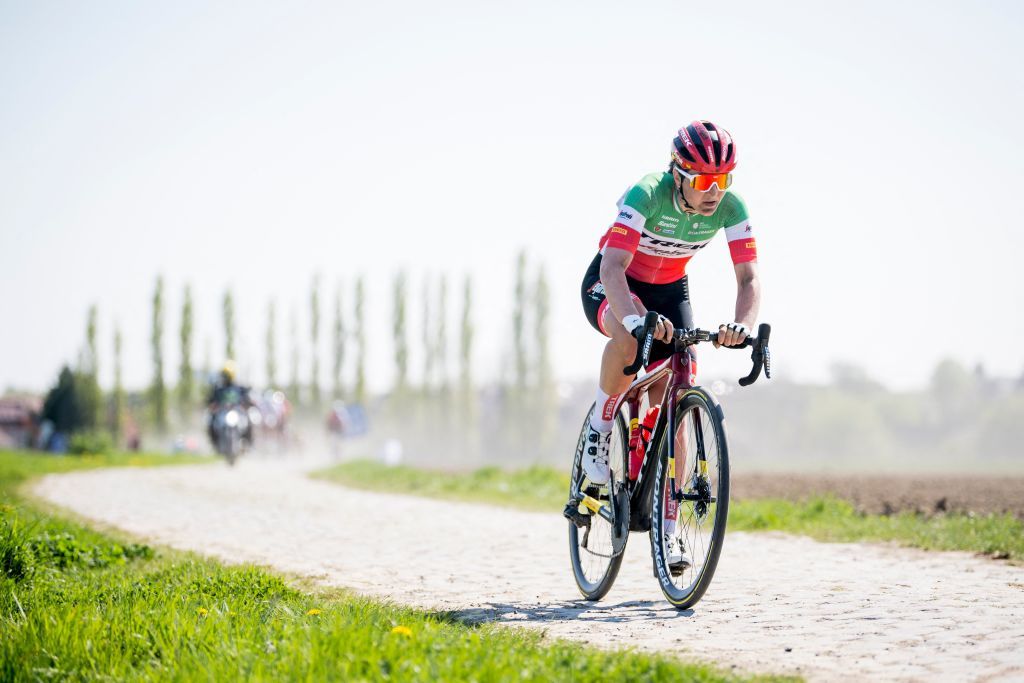When Elisa Longo Borghini is asked how much last-minute thinking was involved in launching her race-winning attack in the 2022 edition of Paris-Roubaix, 34 kilometres from the line, she has an answer that’s very simple and very complicated at the same time.
“Zero. Nothing,” she tells Cyclingnews. “At the precise moment that I attacked, I simply said to myself: ‘OK, see you all in Roubaix.’ In my head, I was just thinking – I want to win this race.”
Breaking away for the biggest triumph of her career wasn’t completely a heat-of-the-moment impulse, though. Rather, Longo Borghini says – and this is contrary to a lot of professionals’ experience – the longer she’s raced, the more she’s learned how to stop calculating what her odds of success are before making a move.
“It’s really interesting because I used to think more when I was younger,” she says. “I was maybe less convinced about my potential. But then, when I realised I could win races, I was like, ‘ok, let’s go for it.’
“Sometimes, when you think less and ride your bike like there’s no tomorrow, you end up winning. Sometimes you end up doing stupid stuff, of course. But on the other hand, there are races like last year’s Paris-Roubaix, too.”
Longo Borghini’s hell-bent-for-leather attitude to racing has also served the 31-year-old Italian well in other ways. With 37 wins in races ranging from the Tour of Flanders, Strade Bianche and Paris-Roubaix to Trofeo Alfredo Binda, the now-defunct Emakumeen Bira and the Route de France, she’s developed a fearsome reputation for one of the most complicated challenges any rival can face: unpredictability.
As she puts it to Cyclingnews, “If my enemies don’t know when I am going to attack, then maybe it’s an advantage because they never know what I’m going to do. I’m very instinctive. Although, of course, having such a strong team to back me helps me too.”
But however powerful her Trek-Segafredo team may be, and however deep her trust in her instincts when racing, Longo Borghini holds yet another trump card. When training, she pays close attention to the numbers and data she’s producing, she says, even if when racing, those stats tend to be the first thing she’ll ignore.
“I think it’s part of our job to be really focussed on your training and so on because then you have to go into the race, and for me, it’s the complete opposite,” she explains. “You start a race with a plan as a team, but if you are a leader, you need those race instincts. They are what…
Click Here to Read the Full Original Article at CyclingNews RSS Feed…

